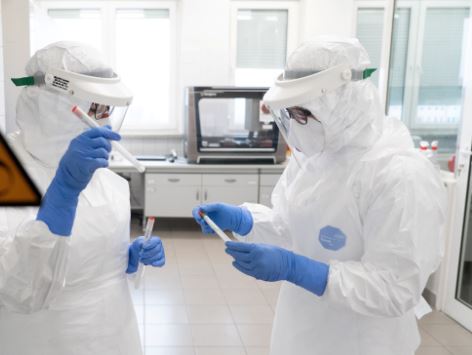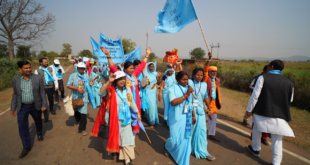Richesh Dutt
 Most pertinent question amid this crisis is, “When will all this get over?” Simplest answer could be a vaccine. As many politicians have also pointed out that total relaxation in lockdown or danger of virus returning can’t be ruled out until vaccine is developed. So, if that’s the simplest way, why governments and companies are not working towards it, and if they are, how much have they really progressed and how much more time do they require when World is already loosing race against the virus.
Most pertinent question amid this crisis is, “When will all this get over?” Simplest answer could be a vaccine. As many politicians have also pointed out that total relaxation in lockdown or danger of virus returning can’t be ruled out until vaccine is developed. So, if that’s the simplest way, why governments and companies are not working towards it, and if they are, how much have they really progressed and how much more time do they require when World is already loosing race against the virus.
So in this article I will try to answer some of these questions.
What’s corona vaccine & why is it so important?
It’s a highly communicable disease and with majority of world’s population still vulnerable to it, a vaccine seems the most effective way to neutralize or slow down its progress. Vaccine provides some protection by training people’s immune systems to fight the virus so they do not become sick, helping to ease lockdown and social distancing norms.

Why is it taking so long to develop?
To understand this, I will have to explain the procedure of vaccine testing.
After a vaccine is developed, its tested on animals and if proven to be safe its clinical or human trial starts. These trials are divided in 3 phases, each of which takes longer and involves more people than the previous trial. Phase 1 establishes the vaccine’s safety in a small group of healthy individuals, with the goal of ruling out debilitating side effects.
Phases 2 and 3 test efficacy, and in an outbreak like the present one they are conducted in places where the disease is prevalent. In parallel with these later phases, production capacity for the candidate vaccine is gradually built up, so that factories are capable of producing it on a large scale if and when regulatory agencies judge that it should be licensed.
Source: The Guardian

When will we have a corona vaccine?
A vaccine would normally take years if not decades to develop. Researchers around globe are working round the clock to complete same amount of work in months.
Public-facing scientists such as the UK’s chief scientific adviser, Sir Patrick Vallance, and his US counterpart, Anthony Fauci, keep repeating that it won’t be before 12 to 18 months
So if it takes 12-18 months, how are others betting to get one by Autumn this year?
Well, If you mean a vaccine that can be used in a mass vaccination campaign, allowing us all to get on with our lives, then 12 to 18 months is probably right.
But in terms of an experimental vaccine that is deemed safe and effective enough to be rolled out in a more limited way – to high-risk groups such as health workers, say – that could be ready within weeks or months, under emergency rules developed by drug regulatory agencies and the World Health Organization in the context of the recent Ebola epidemics in Africa

How close are we?
Health officials from WHO have noted that Gilead’s remdesivir has demonstrated efficacy in treating the coronavirus infection
Two candidate vaccines for COVID-19 have entered the first phase of human clinical trials and another 60 candidate vaccines are in pre-clinical studies, the World Health Organisation (WHO) has confirmed. One is Beijing based and the other is US based.
Apart from these, coronavirus vaccine trial by University of Oxford researchers aims to get efficacy results by September, and manufacturing is already underway. A team led by Sarah Gilbert, a professor of vaccinology, has recruited 500 volunteers from the ages of 18 to 55 for the early- and mid-stage randomized controlled trial. It will be extended to older adults and then to a final stage trial of 5,000 people. Gilbert said that the timing is ambitious but achievable.
India’s Serum Institute, Zydus Cadila and Bharat Biotech among vaccine hunters for COVID-19

Will it be safe?
As vaccines are given to large number of healthy people they have higher bar for safety than do drugs administered to people who are already ill. With SARS-CoV-2 vaccines, researcher’s main safety concern is to avoid a phenomenon called “disease enhancement”, in which vaccinated people develop more severe form of disease than people who have never been vaccinated.
Other issue would be its effectiveness for all age groups, especially against old age people.

Other challenges
One of the biggest challenge is funding of vaccine research with no surety of success and costs running in billions of dollars, and then to set up huge manufacturing units to meet up the demands
Even bigger hurdle would be the logistics and supply chain in a locked down world as vaccine would be needed in billions of dosages.
Also, hoarding of supply by powerful countries may result in other severely hit areas to wait longer.
As initial supply would be limited, its important to prioritize like healthcare workers and most exposed workers to be provided first, then elderly, etc.
 Jubilee Post News & Views
Jubilee Post News & Views





